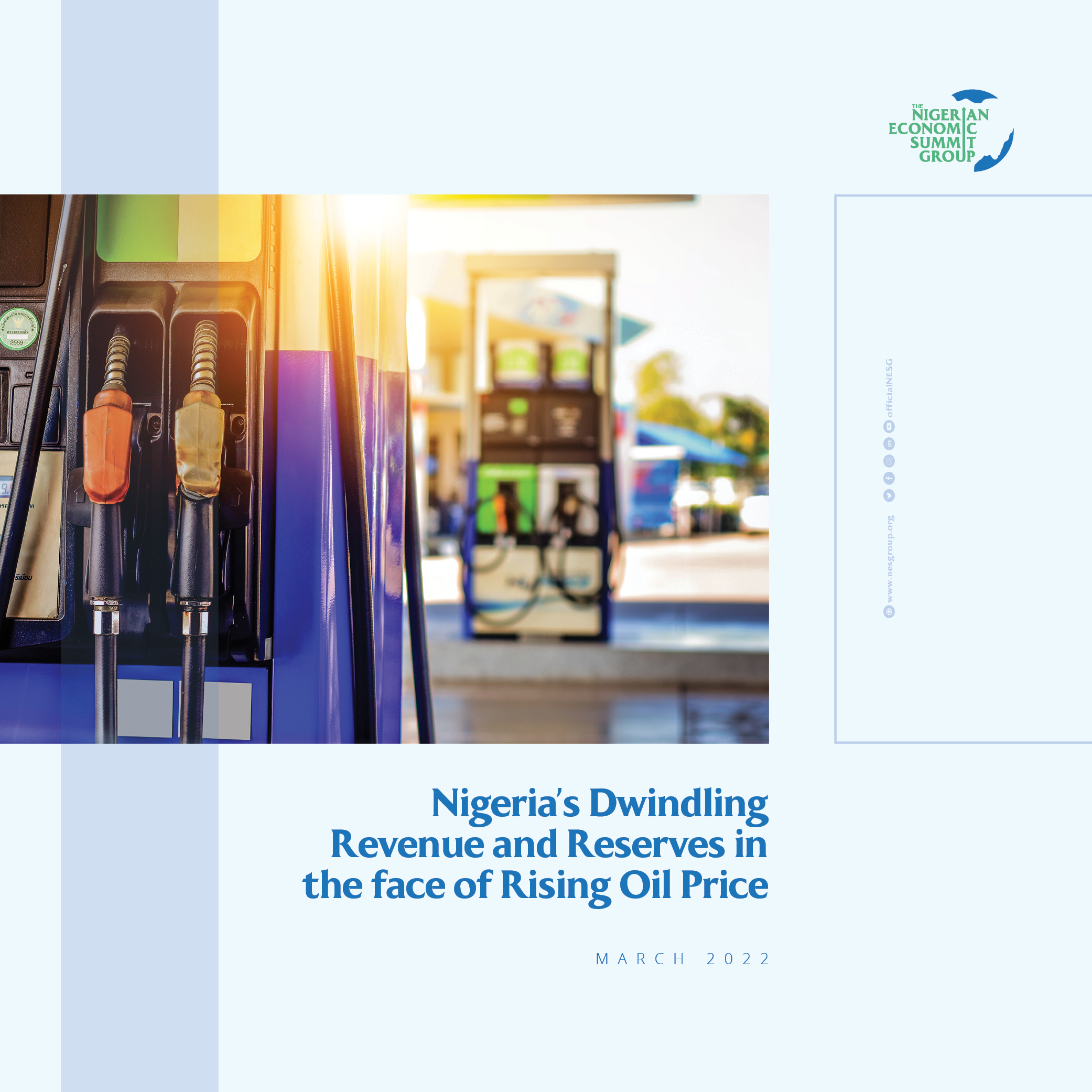Posted Wed, Apr 20, 2022 7:00 PM
Download Report (2562 downloads)
For the second year running, prices in the global oil market have maintained an upward trend following the relaxation of lockdown measures, full resumption of economic activities, and recently, the Russia-Ukraine crisis. Consequently, the average price of Bonny Light crude increased from US$42.1 per barrel (pb) in 2020 to US$71.1pb in 2021. As at February 2022, the average Bonny Light oil price has increased to US$94.4pb. Contrary to expectation, the rising oil price has not significantly impacted Nigeria’s economy. Rather, oil revenue and foreign reserves have continued to decline. Federally collected revenue as at November 2021 underperformed the projected benchmark by 47.4 percent and was lower than the 2020 figure by 31.1 percent. Likewise, the external reserves have been declining for most of 2021. Though the US$4 billion issuances of Eurobonds in September 2021 helped to shore up the reserves, the reserves have maintained a steady decline since then.
While other oil-exporting countries are recording tremendous economic advantages from the rising oil prices, the case is reverse for Nigeria. For instance, Saudi Aramco, the government-owned oil and gas company in Saudi Arabia, declared a 124 percent increase in profit to US$110 billion in 2021, reflecting the level of inflows. Also, in Q4-2021, Saudi Arabia’s oil sector expanded by 10.8 percent. In the case of Nigeria, however, the oil sector in Q4-2021 contracted by 8.1 percent and remained in recession. In accordance, the economy lost an estimated US$14.26 billion in 2021, while the government lost US$7.5 billion in oil revenue. In addition, Nigeria lost about US$15 billion in foreign reserves. Already in the first two months of 2022, Nigeria has lost US$2.18 billion in oil revenue. If Nigeria had secured these inflows as expected, the government could have borrowed much less than the N6.64 trillion debt accumulated in 2021. The situation is quite worrisome: nevertheless, there are numerous opportunities for Nigeria, with the current situation in the global energy market
